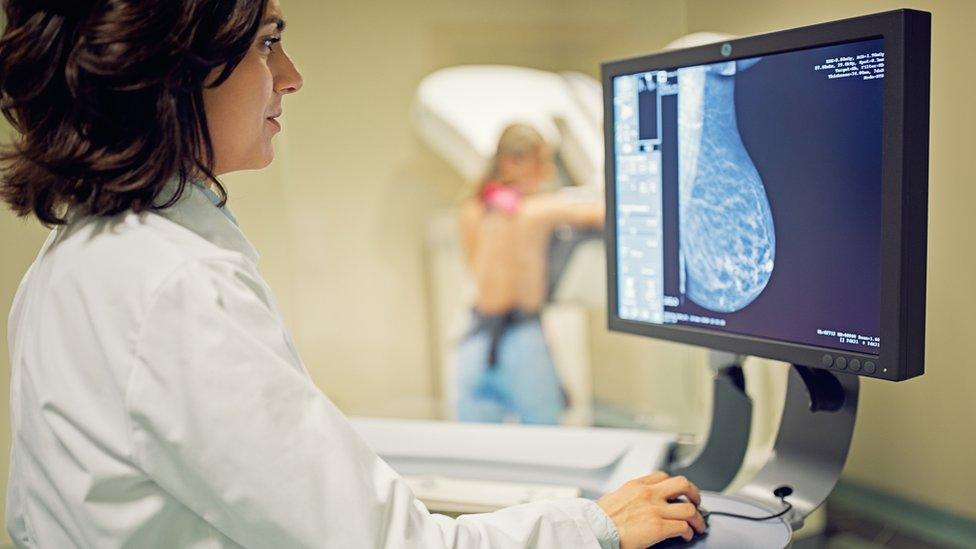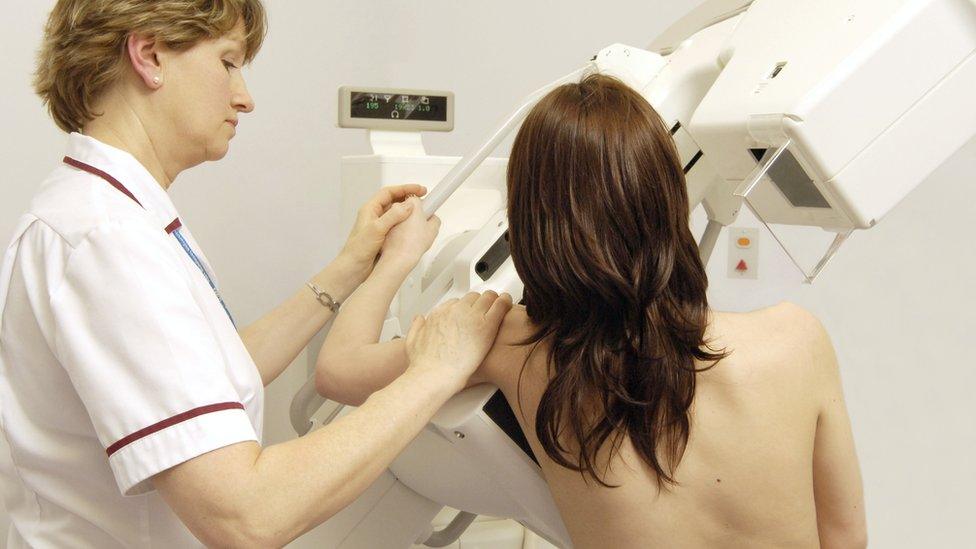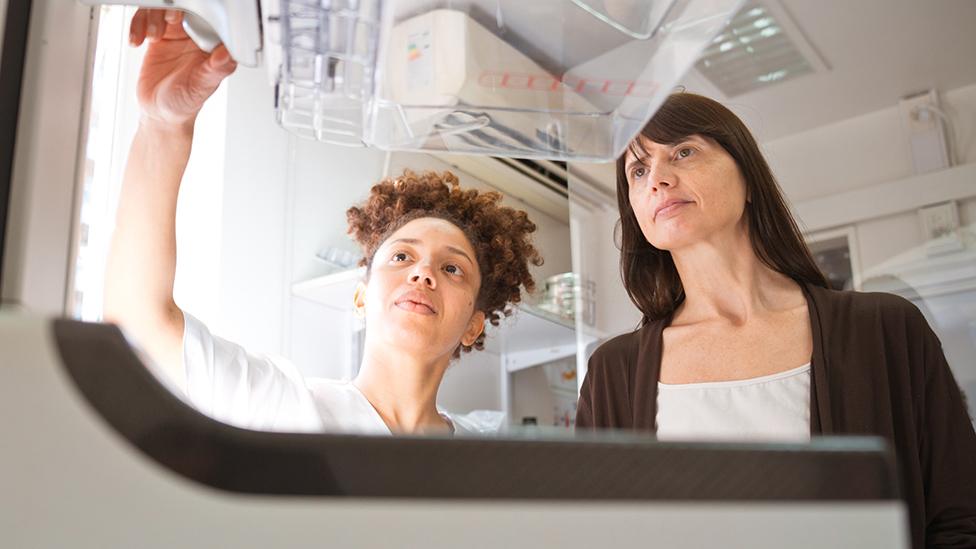Improvement in cancer survival rates slowing down
- Published
- comments

Breast cancer screening has helped save thousands of lives
The rate of improvement in the number of people who survive cancer has slowed significantly, a study says.
A report by Cancer Research UK says the rate of progress was five times faster in the 2000s than in the 2010s.
It says lack of sufficient funding for research is largely to blame.
However, the report also finds the likelihood of surviving a decade or more with cancer in the UK is the highest it has ever been, rising from 47.9% in 2010-11 to 49.8% in 2018.
This compares to about a quarter (24%) in the early 1970s.
It is the first time in a decade that the charity has published figures on overall cancer survival rates in the UK.
Screening programmes for breast, bowel and cervical cancer are credited with saving more than 5,000 lives a year.
Research has also led to improvements in prevention, diagnosis, and treatment.
But the report estimates that unless government spending levels for research are maintained over the next 10 years, there will be a funding gap of more than £1bn, which could "put further medical advances at risk".
Jon Shelton, head of cancer intelligence at Cancer Research UK, said: "This report shows us where the UK is doing well, and where we need to focus on improvements for patients. There are positives in here - screening is having a real impact, and cancer mortality rates are falling.
"There are many areas to improve though. Cancer survival is not improving quickly enough. People are waiting far too long for diagnosis and to start treatment, with cancer waiting time targets consistently being missed. And we need to prevent more cancers."
The report says smoking remains the biggest cause of cancer in the UK, with 150 cases in the UK every day.
Meanwhile obesity and being overweight causes about 22,800 cases of cancer every year in the UK and is a risk factor for 13 different types of the illness, the report says.
Cancer Research UK says a "national cancer council" should be set up for England, bringing together the government, scientists, and charities, to create a 10-year cancer strategy.
It says that by 2040 there are projected to be 500,000 new cancer cases diagnosed each year in the UK - mainly because of a growing and ageing population.
But about a quarter of cancers in England over the last decade have been diagnosed as an emergency - and cancers first spotted via this route are more likely to have late-stage disease, which affects their treatment options.
The analysis for this new report was carried out for Cancer Research UK by the Cancer Survival Group, based at the London School for Hygiene and Tropical Medicine.
Cancer Research UK says for every £1 invested in research, £2.80 of economic benefits are generated.
A Department of Health spokesperson said: "We welcome the news that record numbers of people are surviving cancer long term, with people being diagnosed earlier and the NHS treating record numbers of cancer patients over the past two years.
"But we know there is more work to do.
"We are working to make access to cancer services faster and simpler. We have also invested £2.3bn into speeding up diagnosis and launched 153 community diagnostic centres across England."
Related topics
- Published24 January 2019

- Published12 September 2019

- Published28 November 2023
